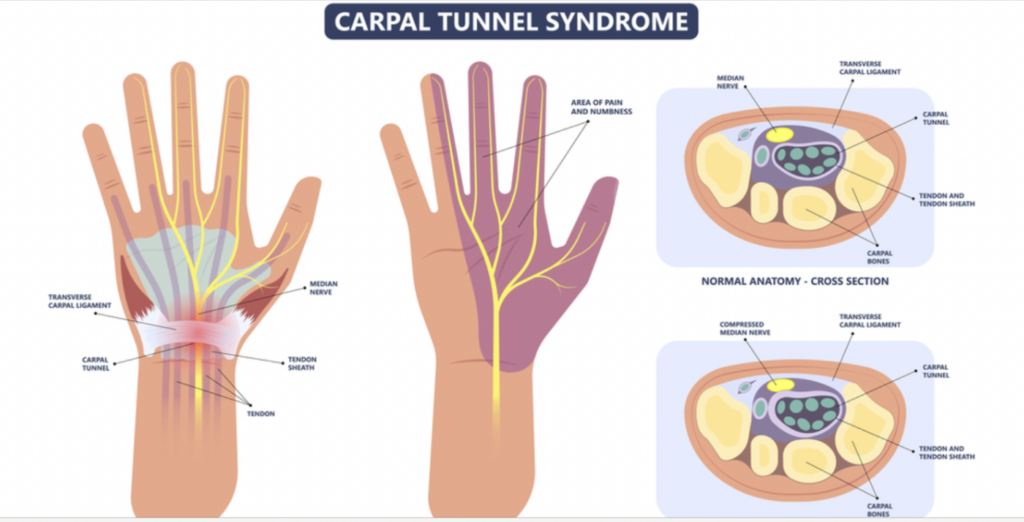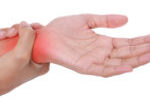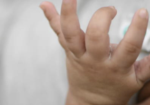Carpal Tunnel Release: Outcomes of Pediatric and Adolescent
Filed under Diagnoses
Rapid Review. Outcomes of pediatric and adolescent carpal tunnel release based on etiology.
Velicki, K., Goldfarb, C. A., Roberts, S., & Wall, L. B. (2021). Outcomes of pediatric and adolescent carpal tunnel release. The Journal of Hand Surgery, 46(3), 178-186.
The Skinny: Less than 1% of pediatric carpal tunnel is idiopathic in nature, compared to adults where the majority of carpal tunnel is idiopathic. Limited studies have looked into the surgical outcomes of pediatric carpal tunnel release and there have been no studies comparing outcomes based on the etiology of symptoms.

In the Weeds: Twenty-three patients with 26 surgeries were enrolled in the study and grouped based on the etiology: All of these patients had hand median nerve pain or other symptoms such as numbness and tingling indicating carpal tunnel syndrome.
| Etiology | Number of Hands |
| Lysosomal storage disease | 11 hands |
| Idiopathic | 6 hands |
| Acute traumatic | 7 hands |
| Delayed traumatic | 5 hands |
| Tumorous | 2 hands |
Outcome measures included the Boston Carpal Tunnel Questionnaire (BCTQ), and Patient-Reported Outcomes Measurement Information System (PROMIS) scores.
Bringing it Home: The median age for surgery was 12.7 years (range 2.5 – 23.3). All patients with tumorous etiology and acute trauma had resolution of symptoms. Those with delayed and idiopathic etiology experienced recurrent symptoms. Patients with lysosomal storage disease all experienced the gradual return of their symptoms with 2 of the patients undergoing revision carpal tunnel release.
In acute cases, carpal tunnel release was very successful in relieving median nerve pain in the pediatric population, but not always in the delayed traumatic. Approximately 50% with idiopathic carpal tunnel experienced resolution of symptoms. With lysosomal storage disease, the patient experienced relief for a few years.
Rating ⅘
There were multiple limitations in the study including a limited number of participants in each category. There was also some diagnostic uncertainty, as some of the diagnosis was based on the clinician’s judgment. Lastly, phone interviews and chart reviews were utilized to obtain outcomes data, so there were various means utilized to obtain the data, in which the interviewer could have influenced the outcomes.
More To Read
3 Common Reasons for Ulnar-Sided Wrist Pain and Non-Surgical Hand Therapy Treatment Options
3 Common Reasons for Ulnar Sided Wrist Pain
Hand Contractures from Arthrogryposis Multiplex Congenita
What is Arthrogryposis Multiplex Congenita?Arthrogryposis Multiplex Congenita (AMC) is a rare congenital condition that is characterized byan individual being born with multiple joint contractures, involving two or more areas of the body(Khurana et al., 2024). AMC is a general term that describes over 400 different medicalconditions that involve joint contractures, instead of just describing one…
5 return-to-cooking activities (that don’t require a kitchen)
Hand therapy can and should be very occupation-based. Every week, we hear comments from patients that back that statement up: “I need to get back to work” “I just want to golf again” “I can’t even open a water bottle” “My spouse has to do all of the cooking” Although standard exercises are helpful, it’s…
Hand Therapy Marketing 101
Marketing 101 – 5 Tips for Your Therapy Clinic Confession: I hate marketing. It’s my least favorite part of my job. It is so hard to open yourself up to that much rejection but still stay positive. It feels like the professional version of blind dating, except the other person probably already has a significant…
Sign-up to Get Updates Straight to Your Inbox!
Sign up with us and we will send you regular blog posts on everything hand therapy, notices every time we upload new videos and tutorials, along with handout, protocols, and other useful information.






